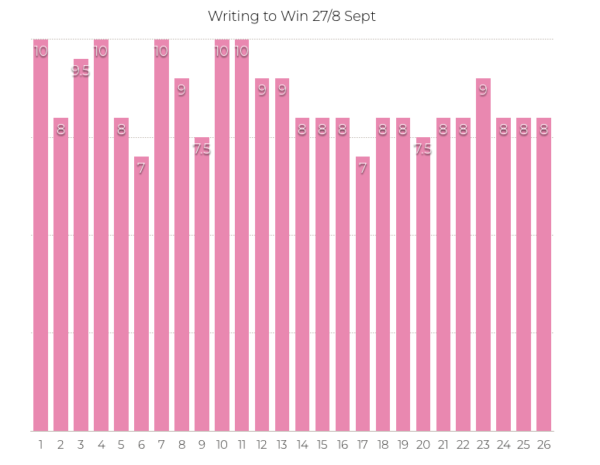Time to skill up?
Bids are expensive; complicated and risky. There will be one winner from 20 organisations who apply, normally 6 will be shortlisted and 3 invited to present. Every minute, pound, piece of paper and drop of sweat will be a write off for most of the participants. To bid for a large contract could take 6 months; a secondment out of operations; finance modelling, a dozen meetings and external support costing tens of thousands of pounds. If you want to plan a truly innovative service model that will transform the industry you will need even more resource. Big tenders may therefore see organisations stake around £100,000 plus on a win.
Or lose it all…
The problem is that the larger contracts are increasingly being tendered; in both the public and private sector. To maximise the probability of winning (P-Win) a company needs to develop or hire internal expertise, which is usually only intermittently utilised, or hire in expensive consultants. Specialist companies like, KPMG or Bid Team will hire teams and individuals out, often with great success, but costs are significant. Good consultants leave a legacy but once they are gone there is generally a reduction in team capability that needs to be filled next time an important bid opportunity emerges.
The problem with business development (BD) is that there are very few people who know the full cycle and scope. Bid writers are reasonably common but they need good information to work with and often do not get involved with the financial or partnership aspects of bidding. Bid management is similar to project management e.g. with deadlines, dependencies, and internal stakeholders but the competitive mindset and writing skillset are not core to project management.
Then there is the expertise to plan a tender. The strategy, the partnerships and working out how the customer can be persuaded to choose you instead of the others. What about choosing which tenders to go for and which to let go? How about the expertise to pitch and present? What about planning to make sure a framework deal is used?
So how can a company or organisation rapidly build the expertise to manage the risks associated with tendering?
One route would be to source a provider, such as Contracts Advance, providing advance contract and framework pipeline visibility of upcoming bids, supported by pre-bid engagement consultancy.
The other would be training to upskill your internal staff. Contracts Advance has over a decade of experience helping their clients to win bids. Trained and led properly in-house
bid teams can be developed rapidly, using the skills of more experienced staff, if that learning can be delivered holistically. They can combine those skills with their expertise in the company’s delivery and the internal stakeholder network making a high performing BD unit.
Whilst this seems simple the full tender cycle is complicated and most of us in BD have learned as we go. Training courses are rare and generally focus on one aspect e.g. bid writing. 7House has the expertise to cover the whole tender cycle. It was a short step to see the potential for training.
Using a proven academic approach, we devised a learning outcomes framework for each area. We then considered the need from a customer’s point of view. We understand that each organisation will have differing skills sets. Years of working with different teams have shown that there can often be unconscious competencies that need to be identified and drawn out. A major training programme applied universally is therefore not suitable for everybody so an element of tailoring is required. As there are not normally large intakes of BD staff e.g. graduates to train all at once (although the full programme will make this possible) we have developed a modular solution. The full set of modules are listed below and can be selected to suit needs.
 Talking with partners and associates we worked through the options facing bidders. Margins are tight and there is little prospect of more funding. Barring a major technological change in an industry this means most tenders need to be planned and competed for with care and diligence leaving the option of an internal team or hiring expertise. To make the internal team competitive with the consultant option in a tender is hard but with expert training, there is no reason why the gap cannot be closed.
Talking with partners and associates we worked through the options facing bidders. Margins are tight and there is little prospect of more funding. Barring a major technological change in an industry this means most tenders need to be planned and competed for with care and diligence leaving the option of an internal team or hiring expertise. To make the internal team competitive with the consultant option in a tender is hard but with expert training, there is no reason why the gap cannot be closed.
Is our training of decent quality? This is the collated feedback from one of our modules. The average feedback is 8.5/10. We think that speaks for itself.
What about value for money? We have estimated the probability of a win and the time spent not bidding against the cost of the various options. Training is an investment as the benefit is lasting; especially if supported by consultant advice. The training can also be repeated for new staff or if an area of weakness needs elimination.